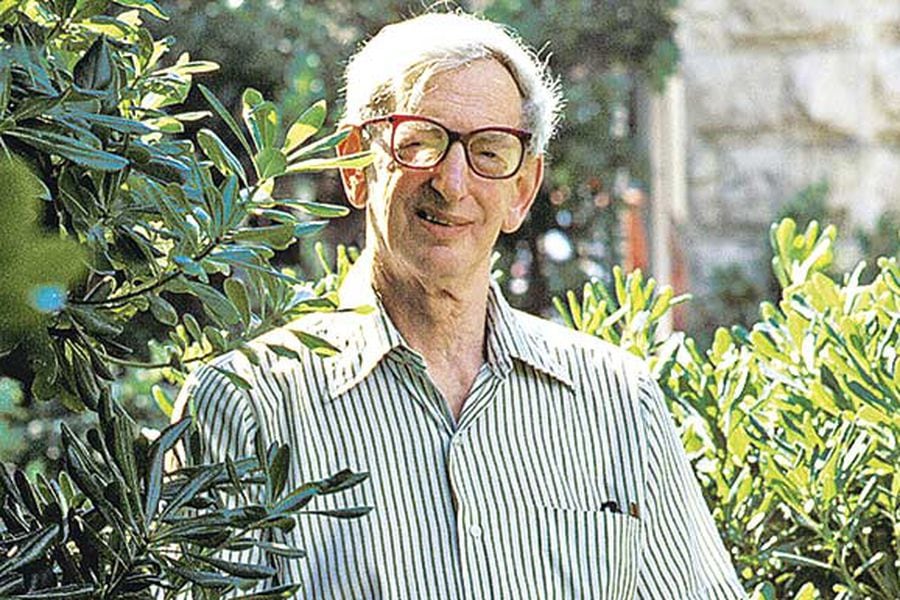On 1 October 2012, historian Eric Hobsbawm died. Rapidly there were reactions in different parts of the world, which is not usual when an intellectual figure dies. On the other hand, the case of Hobsbawm is different, one of the most recognized historians in the world of the last century, whose prestige and whose works transcend the usual limits of the discipline. Ten years after his death, it is worth remembering and reflecting on his life and his work.
He was born in 1917, the same year as the Bolshevik revolution and when the First World War was drawing to a close. He lived for a time in Germany and eventually moved to Great Britain, where he developed his professional and family life until his death. There he consolidated his vocation as a historian, which included conducting original research on economic history, “primitive rebel” groups and other topics. However, what most characterized his work – and what distinguished him from other professionals – was the creation of important summaries of world history in recent centuries, from the era of the “bourgeois revolutions” to the fall of the Berlin wall. passing through “the era of capital” and “the era of imperialism, which composes a set of four volumes translated into numerous languages and which has proved to be a real publishing phenomenon. To this are added other works on historical thought ; also studies on nationalism, with various publications. Particularly noteworthy – and also curious – is the interest he has shown in Latin America, which can be seen in the posthumous book edited by his friend, also a historian Leslie Bethell: Long live the revolution (Criticism, 2018).
Hobsbawm was a man interested in history, but at the same time he was busy with the time he lived. The latter was done in at least two ways. In the first place, for its adherence to Marxism and the Communist Party, as well as for its international revolutionary cause – in Europe and Vietnam, in Latin America and certainly in England – both at the time of the “struggle against fascism” as in the decades of the Cold War. He remained faithful to the end, despite the path followed by the Bolshevik Revolution and the dramatic effects of real socialisms on the various continents.
Secondly, Hobsbawm made his historical time one of his areas of study, which is worth knowing in the field and which one could write about. In the latter floor there is a curious and original situation. About this he wrote his famous him History of the 20th century (Review, numerous editions), a great effort of synthesis and global understanding, which incorporated notions such as “the short twentieth century” or “the age of extremes”. In addition, he wrote his autobiography him, entitled Interesting years. A life in the 20th century (Crítica, 2003), which covers practically the same period, and which is at the same time a reflection on an extraordinary moment in the history of humanity. Furthermore, the complete biography of Richard Evans was recently published: Eric Hobsbawm. a life in history (Crítica, 2021), which covers the entire long life of the historian, partially introduces his works and takes stock of his career.
Evans’ biography shows that Hobsbawm has been under investigation for decades for his Communist militancy. Likewise, he was part of a group of intellectuals who adhered to this ideology and sought to renew historical studies, including EP Thompson. We could say that the historian’s involvement with communism was both vital and intellectual, although at times he was unorthodox by partisan standards.
In a perspective that combines his convictions with his intellectual interests, the publication of how to change the world (Editorial Crítica, 2011), which contains a series of articles on communism, Marx, Lenin, Gramsci and other related issues. He also participated with an introductory study in a special edition of Communist Manifesto, published on the occasion of the 150th anniversary of that influential work by Marx and Engels. The article shows not only the author’s scholarship, but also his appreciation of Marxism even in the 21st century.
In return, the British historian has been repeatedly criticized for his lack of perspective or rigor in the face of Communist dictatorships, for being too condescending towards the Soviet regime and the governments of Eastern Europe, while he was terse with the states. United and their military interventions in various parts of the world. Yet, as historian Tony Judt argues, he has a “ruthlessly curious eye that has made him an indispensable guide to the 20th century”.
By Alejandro San Francisco, academician of the University of San Sebastian and the Catholic University of Chile; Director of the Res Publica Training Institute
–


